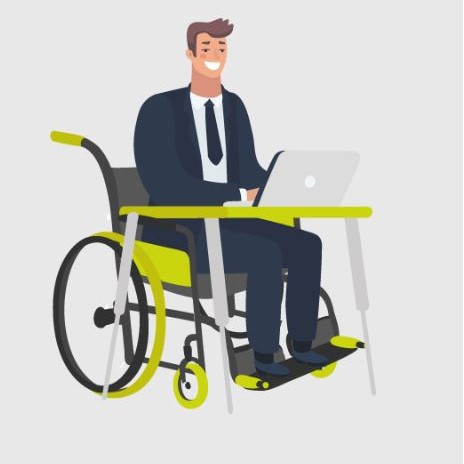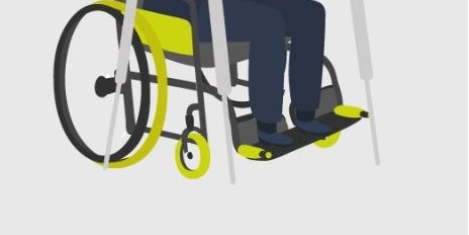To provide the best experiences, we use technologies like cookies to store and/or access device information. Consenting to these technologies will allow us to process data such as browsing behaviour or unique IDs on this site. Not consenting or withdrawing consent, may adversely affect certain features and functions.
The technical storage or access is strictly necessary for the legitimate purpose of enabling the use of a specific service explicitly requested by the subscriber or user, or for the sole purpose of carrying out the transmission of a communication over an electronic communications network.
The technical storage or access is necessary for the legitimate purpose of storing preferences that are not requested by the subscriber or user.
The technical storage or access that is used exclusively for statistical purposes.
The technical storage or access that is used exclusively for anonymous statistical purposes. Without a subpoena, voluntary compliance on the part of your Internet Service Provider, or additional records from a third party, information stored or retrieved for this purpose alone cannot usually be used to identify you.
The technical storage or access is required to create user profiles to send advertising, or to track the user on a website or across several websites for similar marketing purposes.
 Despite ambitious government policies to get a million disabled people into work over the next ten years, the latest ONS data shows a minuscule 5 percent increase since the 2017 goal, which would only see a total of merely 5,800 disabled people in work by 2027 if the pattern continues. In light of the disability employment issue, a new survey of UK SME owners conducted by Bolt Burdon Kemp claims that 95 percent of respondents don’t know the full legal rights of disabled employees. (more…)
Despite ambitious government policies to get a million disabled people into work over the next ten years, the latest ONS data shows a minuscule 5 percent increase since the 2017 goal, which would only see a total of merely 5,800 disabled people in work by 2027 if the pattern continues. In light of the disability employment issue, a new survey of UK SME owners conducted by Bolt Burdon Kemp claims that 95 percent of respondents don’t know the full legal rights of disabled employees. (more…)






 UK employees have the longest working week compared to other workers
UK employees have the longest working week compared to other workers 
 New research from AXA PPP healthcare claims that eight out of ten (82 percent) SME business leaders don’t have a health and wellbeing strategy in place. The same research found two-thirds (24 percent) report experiencing job-related stress or anxiety and just 15 per cent believe their company provides a culture which supports their mental health. The research also claims nearly half (46 percent) of employees working in small and medium sized businesses continue working when they’re feeling unwell and less than a quarter (24 percent) see a GP because they worry about taking time off work. One-fifth (18 percent) feel guilty for taking time away from their desk for lunch and more than a quarter (27 percent) send and receive emails outside of work hours.
New research from AXA PPP healthcare claims that eight out of ten (82 percent) SME business leaders don’t have a health and wellbeing strategy in place. The same research found two-thirds (24 percent) report experiencing job-related stress or anxiety and just 15 per cent believe their company provides a culture which supports their mental health. The research also claims nearly half (46 percent) of employees working in small and medium sized businesses continue working when they’re feeling unwell and less than a quarter (24 percent) see a GP because they worry about taking time off work. One-fifth (18 percent) feel guilty for taking time away from their desk for lunch and more than a quarter (27 percent) send and receive emails outside of work hours.








 Two thirds of workers (66 percent) have felt stressed or anxious about work over the past year claims a new report from Acas. As part of Mental Health Awareness Week (13-19 May) Acas commissioned YouGov to ask employees in Great Britain about their experiences of stress and anxiety in the workplace. The most common reasons given for the way they felt included workloads (60 percent), the way that they were managed (42 percent) and balancing home and work lives (35 percent). As a result of the research Acas has produced a framework to help employers boost positive mental health at work.
Two thirds of workers (66 percent) have felt stressed or anxious about work over the past year claims a new report from Acas. As part of Mental Health Awareness Week (13-19 May) Acas commissioned YouGov to ask employees in Great Britain about their experiences of stress and anxiety in the workplace. The most common reasons given for the way they felt included workloads (60 percent), the way that they were managed (42 percent) and balancing home and work lives (35 percent). As a result of the research Acas has produced a framework to help employers boost positive mental health at work.




 Employers need to be mindful of the significant differences globally in how mental health is viewed and treated, when it comes to managing an international workforce, according to
Employers need to be mindful of the significant differences globally in how mental health is viewed and treated, when it comes to managing an international workforce, according to 








July 15, 2019
The importance of self care for mental health
by Christine Husbands • Comment, Wellbeing